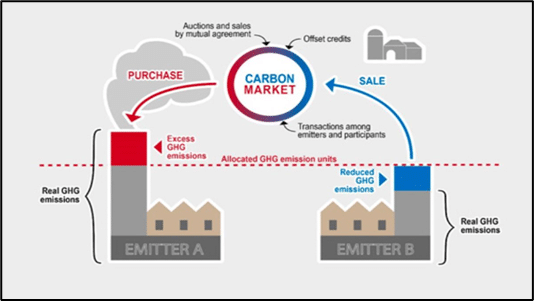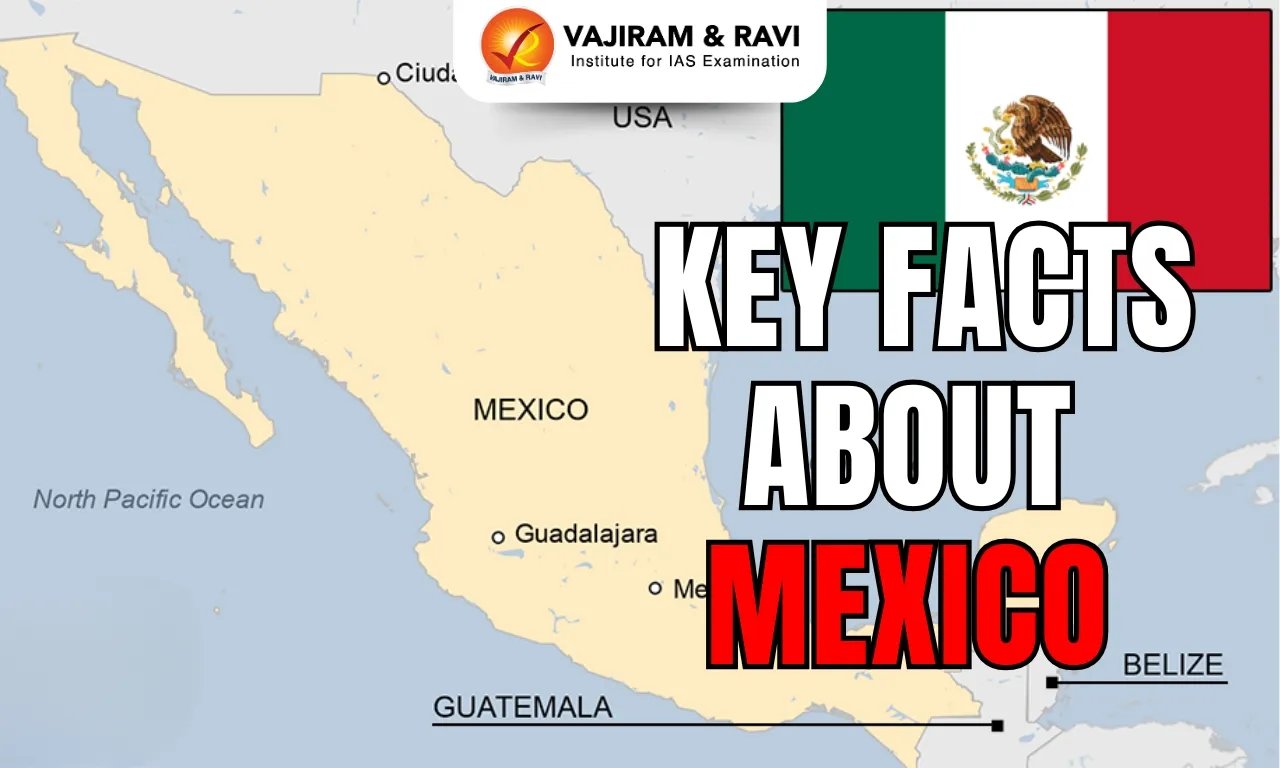What are Carbon Markets?
- Carbon markets are essentially a tool for putting a price on carbon emissions— they establish trading systems where carbon credits or allowances can be bought and sold.
- A carbon credit is a kind of tradable permit that, per United Nations standards, equals one tonne of carbon dioxide removed, reduced, or sequestered from the atmosphere.
- Carbon allowances or caps, meanwhile, are determined by countries or governments according to their emission reduction targets.
- A United Nations Development Program release this year noted that interest in carbon markets is growing globally, i.e., 83% of NDCs submitted by countries mention their intent to make use of international market mechanisms to reduce greenhouse gas emissions.
Two types of Carbon Markets:
- Compliance Market –
- These are set up by policies at the national, regional, and/or international level— are officially regulated.
- Entities in this sector are issued annual allowances or permits by governments equal to the emissions they can generate.
- If companies produce emissions beyond the capped amount, they have to purchase additional permit, either through official auctions or from companies which kept their emissions below the limit, leaving them with surplus allowances.
- The market price of carbon gets determined by market forces when purchasers and sellers trade in emissions allowances.
Voluntary Market:
- These are markets in which emitters— corporations, private individuals, and others— buy carbon credits to offset the emission of one tonne of CO2 or equivalent greenhouse gases.
- Such carbon credits are created by activities which reduce CO2 from the air, such as afforestation.
- In a voluntary market, a corporation looking to compensate for its unavoidable GHG emissions purchases carbon credits from an entity engaged in projects that reduce, remove, capture, or avoid emissions.
Q1) Is greenhouse gas good or bad?
In the right amounts, greenhouse gases, like carbon dioxide, methane, nitrous oxide, are helpful, rather than harmful, because they can help regulate the temperature of the planet.
Last updated on December, 2025
→ Check out the latest UPSC Syllabus 2026 here.
→ Join Vajiram & Ravi’s Interview Guidance Programme for expert help to crack your final UPSC stage.
→ UPSC Mains Result 2025 is now out.
→ UPSC Notification 2026 is scheduled to be released on January 14, 2026.
→ UPSC Calendar 2026 is released on 15th May, 2025.
→ The UPSC Vacancy 2025 were released 1129, out of which 979 were for UPSC CSE and remaining 150 are for UPSC IFoS.
→ UPSC Prelims 2026 will be conducted on 24th May, 2026 & UPSC Mains 2026 will be conducted on 21st August 2026.
→ The UPSC Selection Process is of 3 stages-Prelims, Mains and Interview.
→ UPSC Result 2024 is released with latest UPSC Marksheet 2024. Check Now!
→ UPSC Prelims Result 2025 is out now for the CSE held on 25 May 2025.
→ UPSC Toppers List 2024 is released now. Shakti Dubey is UPSC AIR 1 2024 Topper.
→ UPSC Prelims Question Paper 2025 and Unofficial Prelims Answer Key 2025 are available now.
→ UPSC Mains Question Paper 2025 is out for Essay, GS 1, 2, 3 & GS 4.
→ UPSC Mains Indian Language Question Paper 2025 is now out.
→ UPSC Mains Optional Question Paper 2025 is now out.
→ Also check Best IAS Coaching in Delhi

















